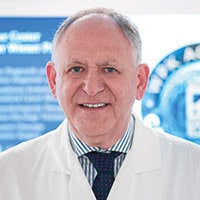Partial anesthesia instead of general anesthesia for the knee: Dr. Luger convinces the patient after the introduction of HappyMed to partial anesthesia!
Experience report from the operating room: It can be assumed that the patient will not experience any stress with HappyMed!
Anesthetist: “HappyMed is very useful for distracting the patient before an operation. The patients are clearly calmer. “
Experience report from the operating room: It can be assumed that the patient will not experience any stress with HappyMed!
Prof. Dr. Strauss – Head of Anesthesia & Head of Anesthesia Division at HELIOS Kliniken: “The employees have completely accepted HappyMed and the patients are incredibly happy about it.”
Dr. Markus Müschenich – Long-time doctor and ehm. CEO of Sana Kliniken: “The HappyMed is a carefree-happy package, for the patients, for the doctors, the nursing staff but also for the management.”
Fr. Hecht: “I was terrified, especially since the operation was delayed. The thoughts only revolved around the operation, but with the HappyMed video glasses I became calmer and the fear was gone. “
“I was totally distracted by the operation and that you can’t hear the noises from the doctors and the tools. And that you are simply more relaxed and calmer. “
“So far, patients who are afraid of an operation have simply been reassured with medication. However, we have thought about how we can reduce the amount of sleeping pills and sedatives for the benefit of those affected. It is well known that 80 percent of the sensory perception takes place through the eyes and ears. Watching a film during the operation is, so to speak, the optimal distraction. Thanks to their use, we have been able to demonstrably reduce the amount of sleeping pills and sedatives by 50 to 70 percent. The enormous advantage here is that patients have to stay much shorter in the labor-intensive recovery room. If patients need about two to three hours of monitoring after an operation with general anesthesia, the viewers can be brought to the ward with local anesthesia after a good quarter of an hour, as soon as it has been clarified that they are not in pain. This also brings great relief in terms of personnel deployment. The use of glasses is particularly suitable for older patients or people with the onset of dementia, who are considerably more stressful than younger people with medication, and are now in great demand. Avoiding fear and stress during the operation also promotes the healing process. The feedback from patients who have already tried the video glasses has been extremely positive. Those who came back for surgery later ask for it again.
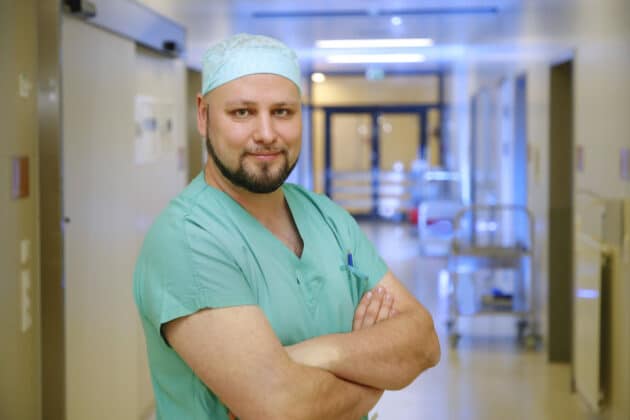
"Our patients are absolutely thrilled with the new offer. We especially offer the glasses to patients who want to distract themselves under a partial anesthetic or who are very excited before the operation. Immersed in the world of vision and sound, they quickly forget that a medical procedure is imminent or that they are currently in the operating room. In addition, the glasses often make it possible to dispense with additional tranquilizers. During an operation under regional anesthesia, many patients fear the unfamiliar surroundings or the noises during the operation. You feel stressed. The HappyMed video system offers the patient optimal visual and acoustic distraction during the operation, optionally with documentaries, Hollywood or children's films. This enables us to enormously reduce the stress level during an operation under regional anesthesia. Our experience shows that our patients come more relaxed and mostly without fear through an operation under regional anesthesia instead of general anesthesia, without having to use other sedatives. "
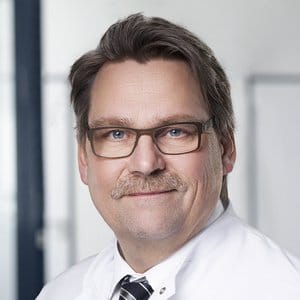
"The problem with patients is often that they are afraid of this partial anesthetic because they do not want to hear anything about the operation, because they are afraid that the anesthesia will not work properly and say:" I want general anesthesia. " do not know about the risks of general anesthesia. This means that this method of audiovisual care for the patient during partial anesthesia is a great new opportunity. "
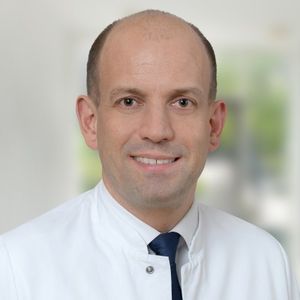
"We are totally satisfied. The employees have completely accepted the system. The patients are incredibly happy about it. They are really well distracted, they are completely relaxed. "
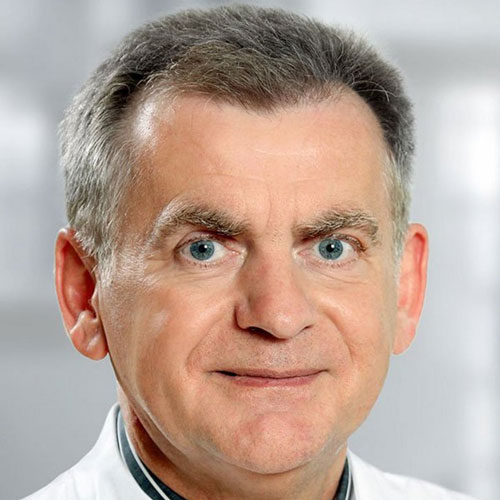
"I remembered the HappyMed video glasses from a visit to the Capital Anesthesia Congress last year. I was immediately convinced of the benefits of audiovisual distraction for patients before, during, or after surgery. Since the beginning of the year we have successfully used 3 HappyMed video glasses at our clinic. In practical use, we are happy about more relaxed patients, in many cases we were even able to save sedative medication. That is a good outcome, with a lasting positive effect on the postoperative phase. "
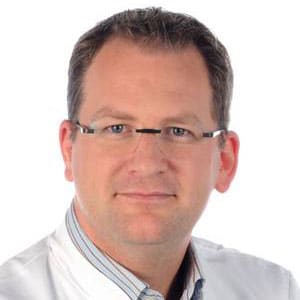
"For us, the patient's well-being comes first - and for this we also like to use innovative and convincing technologies". We were amazed at the immediate positive effects, as well as at the acceptance in the clinics, by employees and patients. Patients breathe more slowly with glasses, their heart beats more calmly, the individual pain sensation decreases and so fewer medicinal sedatives are needed. Overall, the acceptance rate of gentle regional anesthesia instead of general anesthesia is increasing. Doctor and hospital phobias can also be positively influenced in this way. Ultimately, the use of video glasses leads to higher patient satisfaction, as the manufacturer has established. "
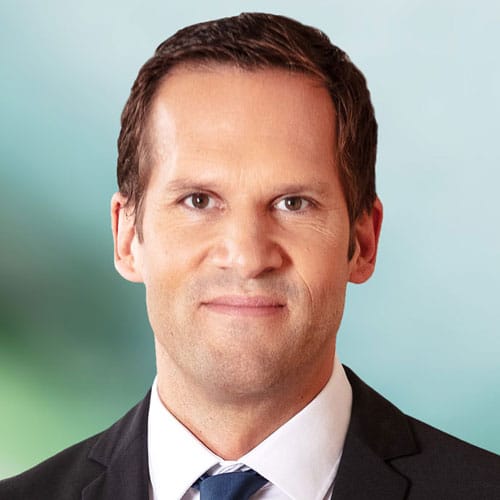
“The top priority is to relieve our patients of fear and discomfort before a medical procedure. The Happymed video glasses support our individual patient treatment, lead to fewer sedatives / anesthetics and faster regeneration after the operation. "
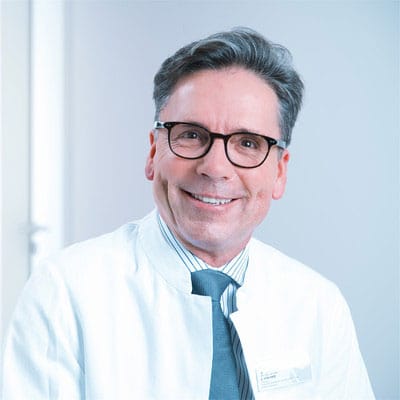
"Thanks to the HappyMed video glasses, patient acceptance of regional anesthesia procedures is also increasing. Almost without exception, additional sedation can be completely dispensed with. Their use is therefore an effective measure to reduce postoperative cognitive deficit states with extended hospital stays - especially in older patients. HappyMed is therefore a win-win for both patient and hospital. "

"The inclusion of psychosomatic mechanisms in the treatment of anxious patients is particularly important in dentistry. HappyMed offers a recommended system as a complete solution in the field of audiovision."
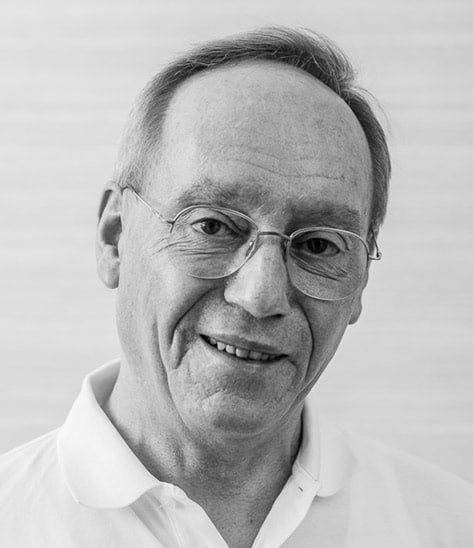
"HappyMed provides a digital solution to a problem that we doctors have only been able to deal with with pharmaceuticals and good words."

"I am convinced that we can benefit from video glasses especially in the interdisciplinary heart and vascular center (HGZ). In close professional cooperation with my colleagues from various specialist areas, we are constantly working to improve patient comfort and treatment safety. We are therefore very pleased that we can make the treatment and hospital stay in the Sana Kliniken Lübeck much more pleasant for patients by using the video glasses. "
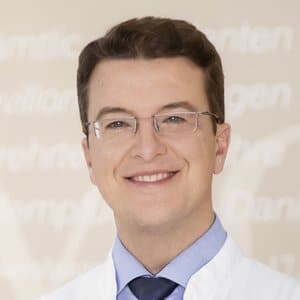
"In addition to the medical component in oncological treatment, we also have to think about the emotional world of our patients. There are many ways to do this, such as listening to music, watching films, reading books and much more. The idea of HappyMed, several of these, is interesting To connect components and to transport patients into a world that helps them to forget the here and now for a while. "
